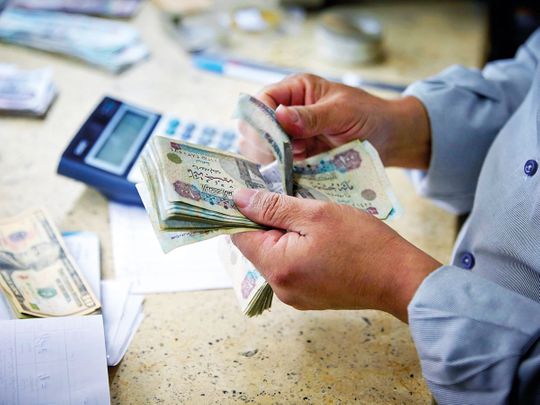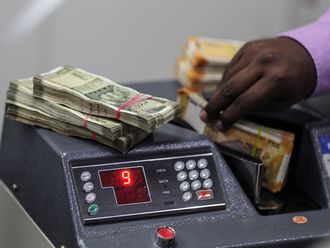
Egypt's pound plunged after the central bank said it was moving to a more flexible currency regime as the North African nation gets closer to an agreement with the International Monetary Fund for a new loan.
The pound depreciated over 12.6 per cent to a record low of 22.4526 against the US dollar, according to data compiled by Bloomberg. The central bank also raised official borrowing costs by 200 basis points.
Egypt's central bank affirmed that it had moved to a "durably flexible exchange rate regime", a move long urged by the International Monetary Fund with which it has been negotiating a financial support package.
In fixed exchange rate regime, a reduction in the par value of the currency is termed as devaluation and a rise as the revaluation. On the other hand, in the flexible exchange rate system, the decrease in currency price is regarded as depreciation and increase, as appreciation.
"The move will result in some short-term economic pain but it will help to get an IMF deal over the line and go a long way to restoring macroeconomic stability," said Jason Tuvey, senior EM economist at Capital Economics.
The country's central bank also raised interest rates by 200 basis points in an exceptional meeting of its monetary policy committee.

EGP to fall to 24 vs. $1 sooner than expected
"A weaker currency, coming alongside rising interest rates, may ignite fresh concerns over the fragile public finances... We expect the currency to fall to 24 versus $1 by the end of next year but there is now clearly a risk that it gets there sooner." The Egyptian pound was last at 22.45 per dollar, and down 30 per cent so far this year.
Some of the world's biggest banks have said the pound was too expensive as the dollar's relentless rise batters the currencies of Egypt's trading partners and developing peers. Before devaluing the pound by about 15 per cent in March, Egypt had kept the currency stable against the dollar for about two years. The IMF favors a more flexible exchange rate.
The Arab world's most populous nation is seeking to lift the economy after Russia's invasion of Ukraine sent Egypt's food and fuel import bills soaring and helped spur an exodus of foreign portfolio investors from the local debt market. The nation is grappling with its worst foreign-exchange crunch since a dollar shortage half a decade ago prompted a pound devaluation and eventually led to a $12 billion IMF loan.
Goldman Sachs Group Inc. economists said Egypt's move on Thursday was a surprise in terms of timing and also bigger than they had expected. "This is likely to lead to significant pound weakness in the immediate term," they said in a report.












